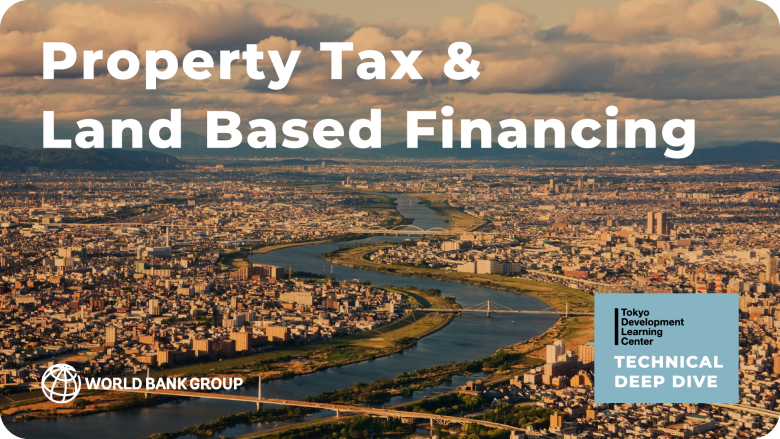
The World Bank Tokyo Development Learning Center (TDLC) in collaboration with the City Management and Governance Global Solutions Group (GSG) and the Urban Regeneration and Land Value Capture Knowledge Silo Breakers (KSB) of the World Bank is organizing an in-person Technical Deep Dive (TDD) on Property Tax and Land Based Financing from September 11 to 15, 2023. Japan’s experience in property tax and land-based financing presents unique opportunities for collaborative learning and knowledge sharing among practitioners, particularly on topics of national regulation and policy, municipal-level involvement, citizen engagement, collaboration with private entities and appropriate technologies.
Land-based financing tools represent important sources of potential revenue for cities across the world. Demographic growth, increasing concentration of residents and economic activities in urban centers, real estate market dynamics, and upgrades to urban infrastructure are among the factors that most contribute to rise in value of real estate. Especially in contexts of increasing urbanization whereby local governments must provide more services for more people in financially constrained environments, it is vital that local governments strategically consider how to leverage and/or “capture” value increases resulting from policy action, public infrastructure and/or public services. While property taxation is one of the most common forms of revenue generation for local governments across the developing world, revenue yields are often low and underperforming. This contrasts strongly with the situation in developed countries where property tax is typically a reliable and predictable source of revenue for local governments. Meanwhile, forms of land-based financing commonly utilized in developed countries– such as sales of development rights, impact fees, special assessments and leveraging of public real property -- are less common in the developing world. To utilize these tools, certain building blocks need to be in place – including enabling regulatory environment, institutional capacity, technical knowledge among government decision-makers.
Drawing on the experience of Japan and other countries with functioning land-based financing and property tax systems, the TDD on Property Tax and Land-Based Financing aims to foster technical knowledge exchange among government officials who have responsibility related to municipal infrastructure finance and development, municipal finance management, and/or fiscal policies affecting municipal revenues. Special focus will be given to challenges and solutions for incorporating land-based financing and property tax policy and administration tools in differing regulatory and market environments. The TDD aims to maximize development impact by examining the evolution of land-based financing and property tax systems in Japan and other developed countries, highlighting the lessons and implications for developing countries, and creating a platform for practitioners to learn from each other. The TDD will be organized jointly by the Municipal Finance and Governance and Land and Geospatial GSGs to help clients develop a better understanding of land-based financing and property tax practices for their local contexts.